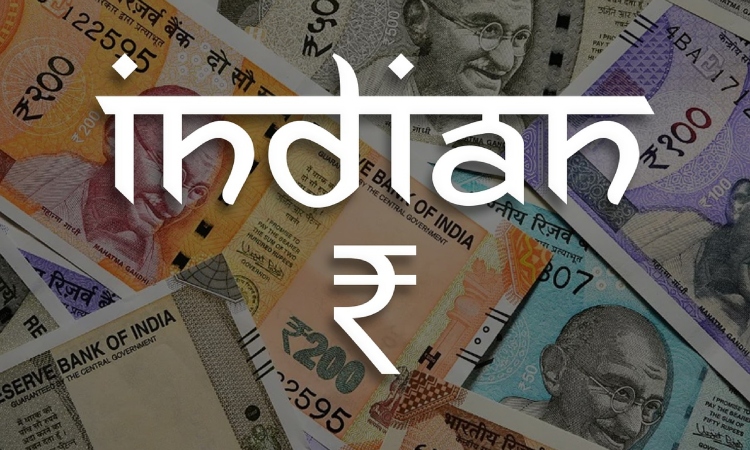
World Bank has upgraded its growth forecast for the Indian economy
It has projected a robust expansion of 7.5% in 2024
Initially, it was estimated at 6.3%
The World Bank has upgraded its growth forecast for the Indian economy, projecting a robust expansion of 7.5% in 2024. Initially estimated at 6.3%, this upward revision indicates a more optimistic outlook for India’s economic trajectory in the coming year.
Also Read: World Bank grants a $363 million loan to Karnataka for tap water connections to rural households
Highlighting the broader regional context, the World Bank anticipates a strong overall economic growth rate of 6.0% in South Asia for 2024. This region encompasses countries such as India, Pakistan, and Sri Lanka, with India’s robust performance driving much of this growth. The recovery seen in Pakistan and Sri Lanka also contributes to the region’s positive economic momentum.
The World Bank’s report underscores India’s pivotal role, stating that the country accounts for the majority of the region’s economy. In India, output growth is expected to hit 7.5% in the fiscal year 2023/24 before stabilizing at 6.6% over the medium term, with services and industry sectors remaining robust.
While Bangladesh is projected to grow by 5.7% in the fiscal year 2024/25, concerns linger over high inflation and trade restrictions, potentially dampening economic activity. Pakistan is forecasted to rebound with a growth rate of 2.3% in the fiscal year 2024/25, attributed to improved business confidence following a contraction in the previous year. Sri Lanka also anticipates a modest recovery, with output growth expected to reach 2.5% in 2025.
Despite promising short-term growth prospects, challenges persist in South Asia, including fiscal instability and the escalating impact of climate change. World Bank Vice President for South Asia, Martin Raiser, emphasizes the need for policies to bolster private investment and employment growth to enhance economic resilience.
Franziska Ohnsorge, World Bank Chief Economist for South Asia, expressed concern over the region’s failure to fully capitalize on its demographic dividend, characterizing it as a missed opportunity.
The revised growth forecasts underscore India’s economic resilience and the broader positive momentum in South Asia, albeit amidst lingering challenges that necessitate concerted policy efforts for sustainable growth.

World Bank has upgraded its growth forecast for the Indian economy
It has projected a robust expansion of 7.5% in 2024
Initially, it was estimated at 6.3%
The World Bank has upgraded its growth forecast for the Indian economy, projecting a robust expansion of 7.5% in 2024. Initially estimated at 6.3%, this upward revision indicates a more optimistic outlook for India’s economic trajectory in the coming year.
Also Read: World Bank grants a $363 million loan to Karnataka for tap water connections to rural households
Highlighting the broader regional context, the World Bank anticipates a strong overall economic growth rate of 6.0% in South Asia for 2024. This region encompasses countries such as India, Pakistan, and Sri Lanka, with India’s robust performance driving much of this growth. The recovery seen in Pakistan and Sri Lanka also contributes to the region’s positive economic momentum.
The World Bank’s report underscores India’s pivotal role, stating that the country accounts for the majority of the region’s economy. In India, output growth is expected to hit 7.5% in the fiscal year 2023/24 before stabilizing at 6.6% over the medium term, with services and industry sectors remaining robust.
While Bangladesh is projected to grow by 5.7% in the fiscal year 2024/25, concerns linger over high inflation and trade restrictions, potentially dampening economic activity. Pakistan is forecasted to rebound with a growth rate of 2.3% in the fiscal year 2024/25, attributed to improved business confidence following a contraction in the previous year. Sri Lanka also anticipates a modest recovery, with output growth expected to reach 2.5% in 2025.
Despite promising short-term growth prospects, challenges persist in South Asia, including fiscal instability and the escalating impact of climate change. World Bank Vice President for South Asia, Martin Raiser, emphasizes the need for policies to bolster private investment and employment growth to enhance economic resilience.
Franziska Ohnsorge, World Bank Chief Economist for South Asia, expressed concern over the region’s failure to fully capitalize on its demographic dividend, characterizing it as a missed opportunity.
The revised growth forecasts underscore India’s economic resilience and the broader positive momentum in South Asia, albeit amidst lingering challenges that necessitate concerted policy efforts for sustainable growth.
